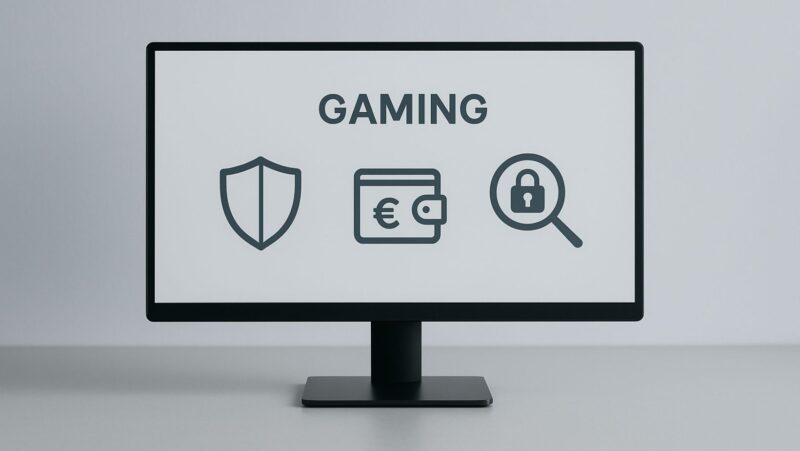
In 2025, the online casino landscape in Australia has positioned itself as a global leader in player trust by embracing community-focused strategies. These platforms understand that transparency isn’t just about clear terms and conditions—it’s about creating genuine connections between players and operators.
Australian casino operators are leveraging social networks and community forums to establish unprecedented levels of trust and accountability with their players. You’ll find that the most reputable Aussie gambling sites now host regular community events, moderate active discussion forums, and maintain authentic social media presences where player concerns receive prompt, public responses.
When you join these casino communities, you gain access to real player experiences that help you make informed decisions. Fellow gamblers openly discuss payout speeds, game fairness, and customer service quality. This community-driven approach has transformed how you can evaluate casino trustworthiness, moving beyond traditional reviews to real-time feedback from actual Australian players.
Foundations of Trust in Aussie Casino Communities
Trust in Australia’s casino sector rests on several fundamental pillars that work together to create responsible gambling environments. Transparent operations, honest communication, and genuine community involvement form the backbone of reputable casino operations across the country.
Core Principles of Transparent Gambling
Transparency in Australia’s gambling industry begins with clear disclosure of odds and game mechanics. You’ll find that trustworthy venues openly share their return-to-player percentages and explain how games function without hidden terms. This openness extends to financial transactions, where responsible operators maintain separate accounts for player funds and operational expenses.
Regulatory compliance forms another crucial aspect of transparency. Casinos that willingly submit to external audits and proudly display their licensing credentials demonstrate commitment to ethical standards. The Australian gaming policy framework requires operators to implement harm minimisation measures, including self-exclusion programs and spending limits.
Data protection also plays a vital role. Reputable gambling establishments employ robust security systems to safeguard your personal and financial information, with clear privacy policies that explain how your data is used.
The Role of Open Communication
Effective communication in Aussie casino communities involves timely and accurate information sharing. You should expect regular updates about changes to terms, promotions, or gaming policies through multiple channels including websites, mobile apps, and on-site notifications.
Responsible operators provide clear pathways for resolving issues. This includes accessible customer service through various methods and transparent complaint resolution processes with defined timelines and procedures.
Gambling news and educational content form another critical component. Trustworthy casinos share industry developments and problem gambling research while offering educational resources about responsible gaming practices. This includes realistic depictions of gambling without glorifying potential winnings or downplaying risks.
Staff training in open communication principles ensures consistent messaging across all customer touchpoints, creating an environment where questions are welcomed and answered honestly.
Importance of Community Engagement
Australian casinos build trust through meaningful community partnerships. According to The Star Entertainment Group, supporting local charities and community groups helps establish positive relationships between gambling venues and their communities. These contributions can include sponsorships, donations, and volunteer programs that address genuine local needs.
Responsible operators also actively participate in community forums and public discussions about gambling’s impact. This includes working with health services, community organisations, and local governments to address gambling-related issues.
Research shows that many Australians question whether gambling’s community contributions truly offset its harms. Transparent casinos acknowledge this concern by publishing detailed reports of their community investments and the measurable outcomes these achieve.
Engaging with diverse community stakeholders helps casinos develop more responsive policies. By involving community members in decision-making processes, gaming establishments demonstrate respect for local perspectives and needs beyond mere profit motives.
Transparency in Casino Operations and Policies
Australian casino operations face intense scrutiny regarding their transparency practices and regulatory compliance. Clear policies, independent oversight, and responsive action to investigations have become essential elements in maintaining public trust.
Clear Gambling Policy and Regulation
Transparency in gambling policy is fundamental to maintaining trust in Australia’s casino industry. When you visit casinos, you should find clearly displayed information about odds, payouts, and responsible gambling measures. This transparency isn’t optional—it’s mandated by regulatory bodies across different states.
Australian gambling regulations require casinos to operate with financial transparency, including regular audits and reporting. The Casino Control Act and similar legislation in different states establish frameworks that promote accountability.

Research by Transparency International Australia highlights that properly structured gambling policies lead to fairer outcomes for patrons. Organisations like IPART (Independent Pricing and Regulatory Tribunal) have emphasised that transparent policies should include responsible gambling measures, clear terms for loyalty programs, and accessible complaint mechanisms.
How Royal Commissions Drive Change
Royal Commissions have become powerful catalysts for transparency reforms in Australia’s casino sector. These independent inquiries examine casino operations with extraordinary investigative powers, bringing hidden practices into the public domain.
Recent Royal Commissions have uncovered concerning practices in major casinos, prompting significant regulatory changes. Their findings typically result in strengthened oversight, new compliance requirements, and improved disclosure obligations.
The Victorian Commission for Gambling and Liquor Regulation’s Sixth Review of the Melbourne Casino demonstrates how systematic reviews identify areas requiring improvement. These commissions provide recommendations that often become the blueprint for industry-wide reforms.
Case Study: The Star and Regulatory Action
The Star Entertainment Group’s regulatory challenges provide a clear example of transparency failures and subsequent consequences. Investigations by the NSW Crime Commission uncovered serious compliance issues at The Star Sydney, including questionable financial transactions and inadequate anti-money laundering protocols.
Following extensive inquiry, regulators imposed strict conditions on The Star’s operating licence. You can now observe increased monitoring, mandatory reporting, and independent oversight at these venues.
The Star case demonstrates how casinos must adapt to more rigorous transparency demands. Changes included board restructuring, enhanced due diligence procedures, and improved patron monitoring systems.
This example illustrates the real-world application of Australia’s “fit and proper person” test for casino operators and the consequences when transparency standards aren’t met.
Community Wellbeing and Responsible Gambling Practices
Australian casino communities must balance entertainment with harm minimisation strategies to protect vulnerable individuals and promote community health. Responsible gambling frameworks aim to create sustainable gaming environments where patrons can make informed choices.
Addressing Problem Gambling and Social Costs
Problem gambling affects approximately 0.5-1% of Australian adults, with social costs estimated at $4.7 billion annually. These costs include financial hardship, relationship breakdown, mental health issues, and in severe cases, criminal activity.
Research from Monash University indicates that a focus on ‘responsible gambling’ has somewhat legitimised gambling activities by creating a perception that only a small minority develop problems. This framing can unintentionally downplay widespread harms.
Effective strategies to address these issues include:
- Self-exclusion programs
- Mandatory pre-commitment systems
- Staff training to identify at-risk behaviours
- Community education campaigns
Queensland’s audit of gambling harm minimisation strategies revealed gaps between policy intentions and implementation. You should look for casinos that transparently report their harm reduction outcomes rather than just their policies.
The Impact of Electronic Gaming Machines and Pokies
Pokies account for approximately 51% of Australia’s gambling expenditure despite being used by only 21% of gamblers. These electronic gaming machines (EGMs) are designed with features that can intensify gambling behaviours through lights, sounds and near-miss experiences.
Communities with high EGM density often experience disproportionate levels of gambling harm. Data shows that pokies are typically concentrated in areas of socioeconomic disadvantage, raising questions about equity and exploitation.
Recent innovations in responsible gambling for pokies include:
| Measure | Purpose | Effectiveness |
| Betting limits | Cap potential losses | Moderate |
| On-screen warnings | Increase awareness | Limited |
| Mandatory breaks | Disrupt extended play | Promising |
You should be wary of casinos that promote their ‘community contributions’ without addressing the social costs of their gaming operations. Research assessing these contributions found they rarely offset the harms caused by gambling activities in the community.
Collaborative Efforts and the Future of Transparent Gambling
The gambling landscape in Australia is evolving through strategic partnerships and innovative approaches to responsible gaming. These collaborative efforts are reshaping how transparency operates within casino communities across the country.
Partnerships Between Casinos and Regulators
Queensland’s Audit Office recently assessed the effectiveness of state strategies in minimising gambling-related harm. This evaluation highlights the growing trend of casinos working directly with regulatory bodies to implement more transparent policies.
You’ll find that successful partnerships often involve regular reporting mechanisms where casinos share player data and intervention outcomes with regulators. These collaborations create accountability systems that benefit both parties.
Many Australian states now require gaming venues to participate in regular forums with regulatory representatives. These meetings allow for the exchange of best practices and immediate feedback on compliance issues.
The racing industry has been particularly proactive in developing cooperative relationships with gambling regulators. Their joint initiatives often serve as models for other sectors of the gambling industry.
Industry Initiatives for Safer Communities
The gambling industry in Australia has begun implementing self-regulation measures that exceed minimum legal requirements. These voluntary standards demonstrate a commitment to community wellbeing beyond profit margins.
You can observe this shift through industry-wide adoption of responsible gambling codes. These frameworks include mandatory staff training on identifying problem gambling behaviours and appropriate intervention techniques.
Relationships Australia notes in their submission to a parliamentary inquiry that industry-led initiatives can complement government regulation. This multi-layered approach creates more robust protections for vulnerable players.
Gaming policy experts suggest that industry-funded community education programs represent a significant step forward. These programs help build gambling literacy among diverse population groups.
Some operators now feature real-time responsible gambling messaging integrated directly into their platforms. This approach provides timely information when you’re most receptive to safety messaging.
Research and Innovation in Responsible Gaming
Research partnerships between casinos and academic institutions are generating valuable insights into gambling behaviours. These collaborations produce evidence-based approaches to harm minimisation.

You’ll benefit from innovations like behavioural tracking tools that provide personalised feedback on your gambling patterns. These systems use algorithms to identify potential risk behaviours before they develop into problems.
The latest news in responsible gaming technology includes immersive virtual reality applications for gambling education. These tools help you understand odds and gambling mechanics in engaging, memorable ways.
Australian researchers are leading global efforts to develop standardised transparency metrics for the gambling industry. These measurements allow for meaningful comparisons between operators and jurisdictions.
Recent innovations include blockchain-based verification systems that ensure complete transparency in game outcomes. This technology builds trust by allowing independent verification of fairness claims.






